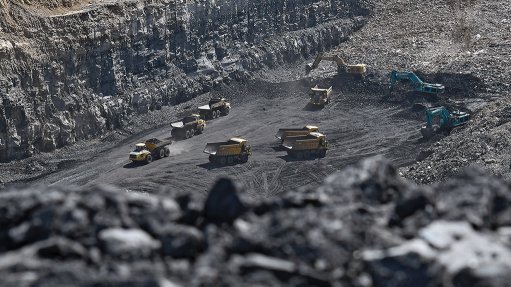
As South Africa undertakes the long process of a just energy transition (JET), coal mining projects and coal-fired power stations will still continue to be relevant for quite some time in the interim; however, finding the requisite funding for these has become a challenge owing to the reputational risk and money being prioritised for the JET.
This was noted by speakers at the Coal and Energy Transition Day event, which was held in Johannesburg on July 18.
Speakers said, however, that there were facets of the coal industry that can attract funding and outlined considerations for stakeholders to secure this.
MX Mining Capital Projects director Dr Mike Seeger said the key challenge in securing coal mining financing was that there were often critics at financial institutions, with people not wanting to be associated with awarding funds to coal projects, because of the reputational risks in the future.
He emphasised that stakeholders needed innovative structures to mitigate this.
He also pointed out that, owing to this, they would often not secure the full amount of capital required for projects and would have to find other avenues.
However, Seeger said there were opportunities that could be capitalised on, such as sustainability in coal mining, with investors keen to finance projects in this vein – such as renewable energy projects that supply power to coal mines, and funding of electric mining vehicles.
He asserted that if a solid business case was presented for such initiatives, with a good return on investment, then money could be found for them.
Industrial Development Corporation (IDC) energy strategic business unit head Christo Fourie said the entity would be funding coal mining for several years, as power stations needed a constant supply of raw materials.
He acknowledged that the process of applying for funding from the IDC could be daunting and onerous, given that proper due diligence had to be done.
However, he noted that the IDC had since introduced business development managers, tasked with the role of initial interface for applicants and assisting them through the process.
Fourie also said there was potential to obtain funding from international sources; however, this came with lots of conditionality and it was not easy to secure.
He added that international investors seemed to prefer deploying funding into the private sector through entities such as the IDC and the Development Bank of Southern Africa, rather than giving all of their funds to State-owned utility Eskom.
Further, Fourie said they seemed to also be receptive to deploying money into transmission and distribution infrastructure.
Therefore, he emphasised that the country needed to put in place a proper funding model, which would allow it to deploy money to relevant projects.